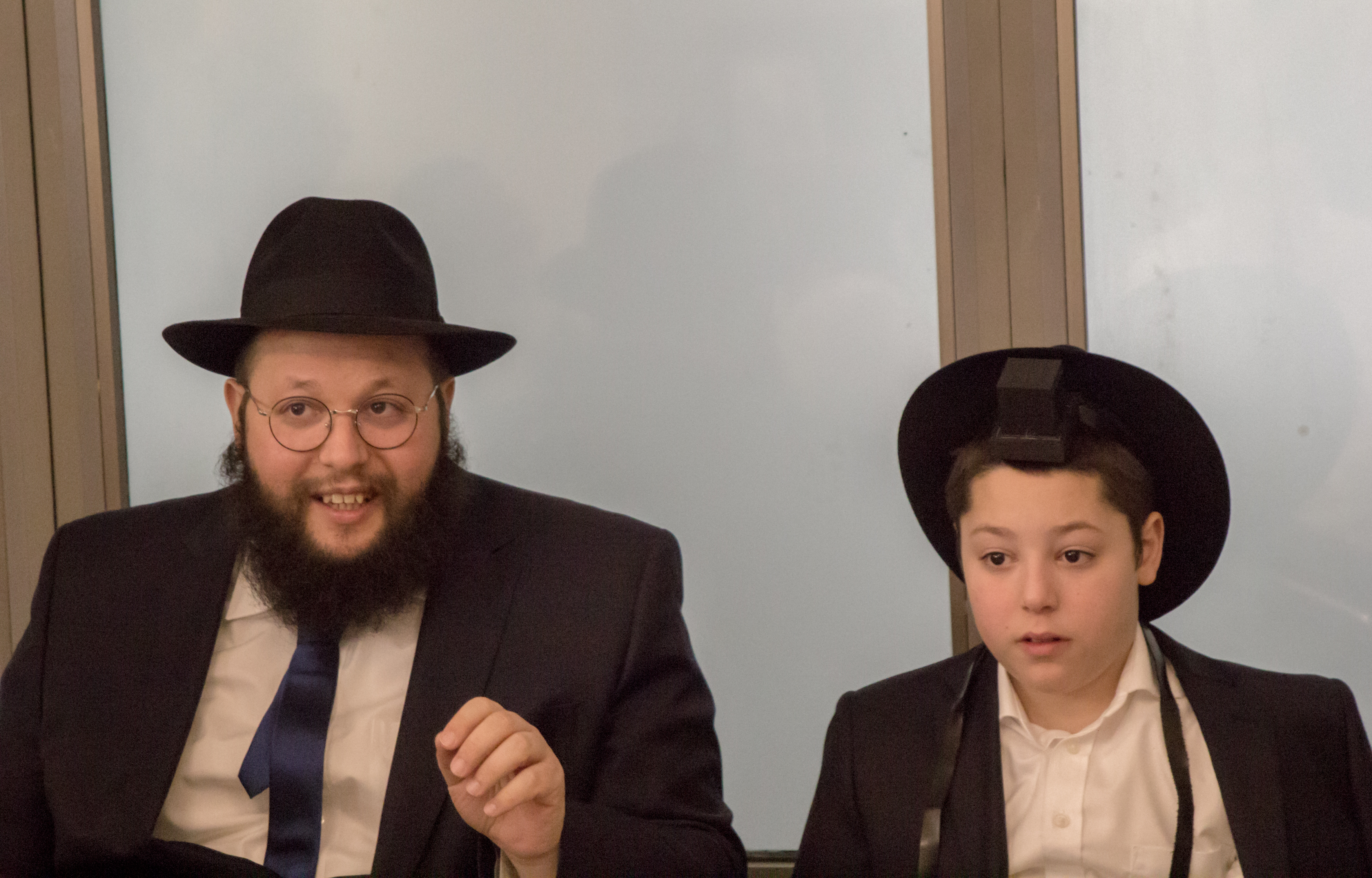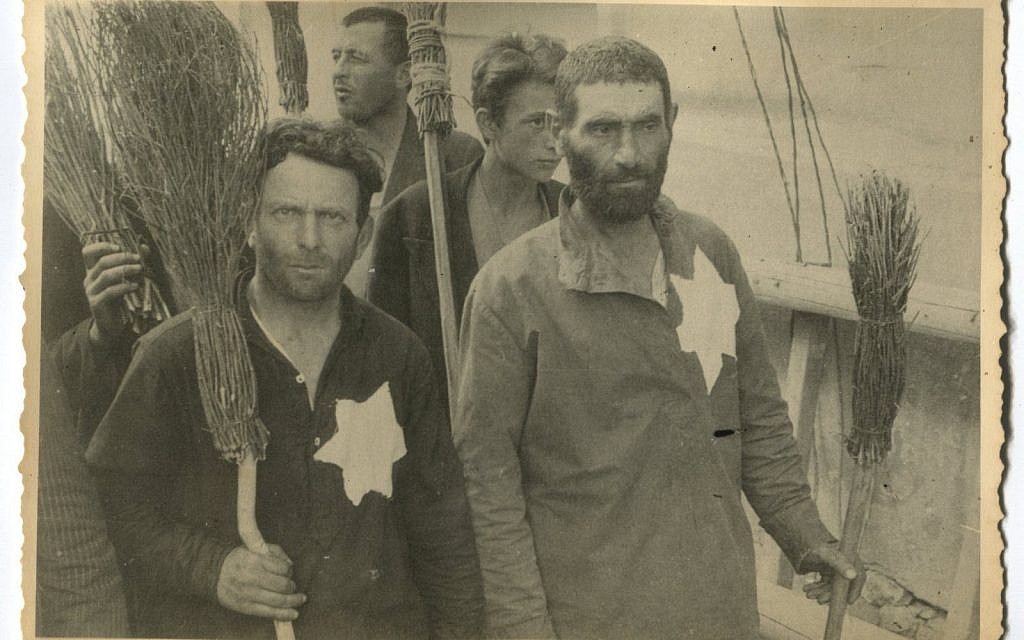100 families to celebrate seder in Warsaw Ghetto for first time since 1943
Chief rabbi of Chabad Poland will host historic Passover meal in the Polish city at the heart of what was once the Jewish ghetto
For the first time since Nazi troops stormed the Warsaw Ghetto in 1943 to kill or deport its residents, 100 Diaspora Jewish families are to celebrate a Passover Seder at the site.
Rabbi Shalom Ber Stambler, the chief rabbi of Chabad-Poland, will host the special Seder in the heart of what was formerly the Warsaw Ghetto with Jewish families from Israel, Europe and the US.
It is being held 76 years to the day since the Warsaw Ghetto Uprising broke out on 19 April 1943, the eve of Passover, when Nazi German troops stormed in. They had expected the deportation process to last three days, but were ambushed by Jewish rebels.
Get The Jewish News Daily Edition by email and never miss our top stories Free Sign Up
Stambler said it would be “a magnificent show of spiritual triumph, families of Ghetto survivors celebrating the Jewish festival of redemption together”.
Among those flying in will be Yosef Nachum and Nakmi’a Ben-Shem (previously Feldschuh). Their daughter Sharon described how her aunt – child prodigy Josima Feldschuh, the celebrated young pianist of the Ghetto – died on 21 April 1943, just before her 14th birthday, while in hiding.
“Her very last meal took place the prior evening, the Seder night of 1943,” she said. “This year, we will be joining the Seder in Poland together with her family. We will be in her city, precisely on the day that she passed away.”

She added: “It is deeply meaningful to us to be celebrating Passover together as free Jews in a place where so many, including our own family, perished tragically.”
Other guests include members of the Spielman family, whose uncle Vlaidslav was a world-famous pianist, and Albert Stankovski, director of the Warsaw Ghetto Museum, which is currently being constructed by the Polish government.
“Before the war, approximately one third of Warsaw was Jewish,” said Stankovski. “Commemorating pre-war Jewish Warsaw and celebrating the growth of the current Jewish community is of the utmost importance to us. The Passover celebration is a vital part of this process.”
The Warsaw Ghetto Museum will be housed in the historic building of the former children’ hospital established by Jewish families Bersohn and Bauman as a clinic for children of all faiths. The exhibition at 60 Sienna Street will open on the 80th anniversary of the Uprising.
The communal Passover Seder, which will initially be divided into three – given in Polish, Hebrew and English – is Rabbi Stambler’s latest effort to rejuvenate the community and spread awareness of Jewish identity and Jewish life in Poland.
Among the young Lubavitch rabbis travelling to Poland for the event is Rabbi Levi Goldschmidt, a great-great grandson of Rabbi Tzvi Hersch Gur-Aryeh, a Jewish dignitary in Warsaw before the war. Gur-Aryeh was killed in the Ghetto on Pesach, hours after covertly baking matzah.
Stambler, whose 13-year old son Yossi will lead the Seder in Hebrew, said: “It is very significant for us to be celebrating Jewish holidays, and particularly the Seder night, which symbolises Jewish freedom and the day that we united as a nation, in a place that not long ago others sought to destroy us.”

Thank you for helping to make Jewish News the leading source of news and opinion for the UK Jewish community. Today we're asking for your invaluable help to continue putting our community first in everything we do.
For as little as £5 a month you can help sustain the vital work we do in celebrating and standing up for Jewish life in Britain.
Jewish News holds our community together and keeps us connected. Like a synagogue, it’s where people turn to feel part of something bigger. It also proudly shows the rest of Britain the vibrancy and rich culture of modern Jewish life.
You can make a quick and easy one-off or monthly contribution of £5, £10, £20 or any other sum you’re comfortable with.
100% of your donation will help us continue celebrating our community, in all its dynamic diversity...
Engaging
Being a community platform means so much more than producing a newspaper and website. One of our proudest roles is media partnering with our invaluable charities to amplify the outstanding work they do to help us all.
Celebrating
There’s no shortage of oys in the world but Jewish News takes every opportunity to celebrate the joys too, through projects like Night of Heroes, 40 Under 40 and other compelling countdowns that make the community kvell with pride.
Pioneering
In the first collaboration between media outlets from different faiths, Jewish News worked with British Muslim TV and Church Times to produce a list of young activists leading the way on interfaith understanding.
Campaigning
Royal Mail issued a stamp honouring Holocaust hero Sir Nicholas Winton after a Jewish News campaign attracted more than 100,000 backers. Jewish Newsalso produces special editions of the paper highlighting pressing issues including mental health and Holocaust remembrance.
Easy access
In an age when news is readily accessible, Jewish News provides high-quality content free online and offline, removing any financial barriers to connecting people.
Voice of our community to wider society
The Jewish News team regularly appears on TV, radio and on the pages of the national press to comment on stories about the Jewish community. Easy access to the paper on the streets of London also means Jewish News provides an invaluable window into the community for the country at large.
We hope you agree all this is worth preserving.
-
By Brigit Grant
-
By Laurent Vaughan - Senior Associate (Bishop & Sewell Solicitors)
-
By Laurent Vaughan - Senior Associate (Bishop & Sewell Solicitors)
-
By Laurent Vaughan - Senior Associate (Bishop & Sewell Solicitors)
-
By Laurent Vaughan - Senior Associate (Bishop & Sewell Solicitors)






















